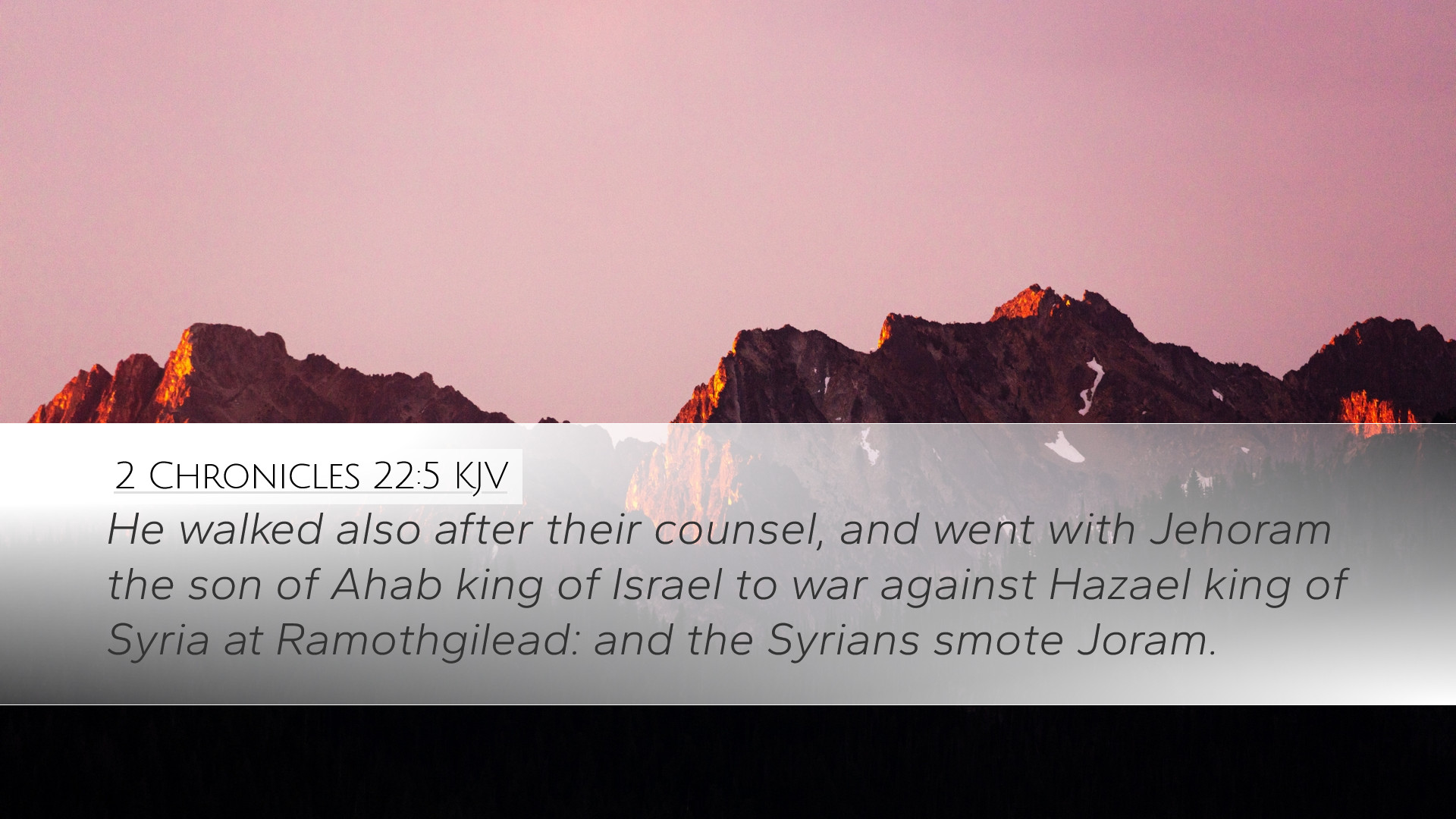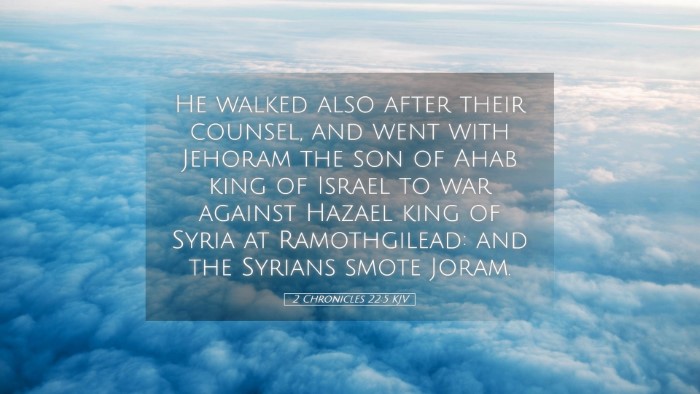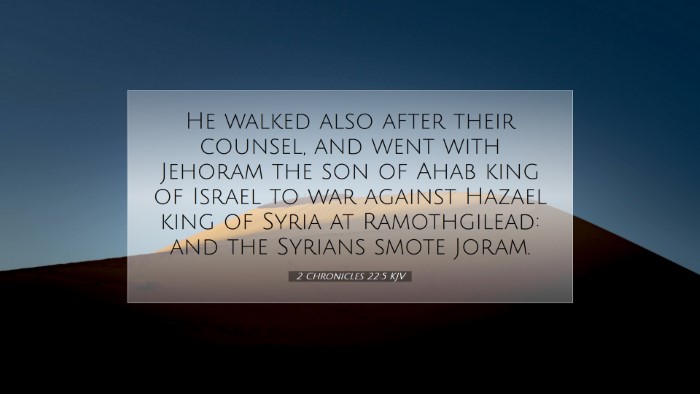Commentary on 2 Chronicles 22:5
2 Chronicles 22:5 states: "He also walked after their counsel, and went with Jehoram the son of Ahab king of Israel to war against Hazael king of Syria at Ramoth-gilead; and the Syrians smote Joash." This verse marks a significant moment in the narrative of the kings of Judah and their interactions with Israel, encapsulating vital theological and historical themes for consideration by pastors, students, theologians, and Bible scholars.
Contextual Background
To understand 2 Chronicles 22:5, it is essential to recognize the historical context of Judah's monarchy and the ongoing tension with Israel. At this time, Judah and Israel were divided kingdoms, each having its rulers who often influenced one another. The influence of Ahab's dynasty over Joash, king of Judah, is particularly poignant.
The Role of Influence
Joash’s decision to seek counsel from Jehoram, the son of Ahab, reveals a significant aspect of leadership: the danger of aligning oneself with ungodly counsel. According to Matthew Henry, this choice leads not only to military conflict but also represents a spiritual divergence from the covenant established by God with His people. Rather than seeking God’s guidance, Joash opted for the impaired wisdom of a king associated with Baal worship.
Consequences of Unwise Alliances
Albert Barnes emphasizes that alliances with wicked rulers and nations often bring adverse consequences. Joash’s cooperation with Jehoram ultimately led to defeat in battle, illustrating the principle that trusting in human wisdom over divine direction can have dire results. Joash’s defeat at the hands of the Syrians serves as a reminder that reliance on flawed human alliances may lead to spiritual and physical peril.
Spiritual Implications
This verse invites readers to reflect on their sources of wisdom and counsel. Adam Clarke posits that the propensity to follow the counsel of the ungodly can lead individuals away from God’s intended path. In a broader theological context, believers are reminded of the importance of discerning the voices they heed, as Proverbs 1:10 warns, "My son, if sinners entice you, do not consent."
Application for Leadership
The case of Joash serves as a powerful cautionary tale for leaders today. Pastors and church leaders should be vigilant against compromising their convictions for the sake of political or social alliances. Godly leadership requires a steadfast commitment to the principles of Scripture over the transient advice of worldly advisors.
Theological Reflections
The narrative illustrates a fundamental aspect of God's sovereignty in history. Despite Joash's misguided choices, God's ultimate plan continues to unfold. The remnant of believers in Judah is preserved, and God's purposes are not thwarted by human failures. This affirms the theological truth that God remains in control, even when human leaders stray from the path of righteousness.
The Nature of God’s Judgment
Joash’s defeat is also an example of God's judgment against sin. As noted by Matthew Henry, God’s judgements are often a means of correction for the wayward. The Lord may allow trials and defeats to cause His people to reflect and return to Him (Hebrews 12:6). Understanding this aspect of divine judgment is crucial for students and scholars studying the attributes of God.
Conclusion
In summary, 2 Chronicles 22:5 serves as a rich source of exhortation and warning for those in spiritual leadership and study. The perils of seeking counsel from the ungodly, the consequences of unwise alliances, and the overarching narrative of God's sovereignty are focal points for deeper theological reflection. This verse encourages believers to anchor their decisions in divine wisdom and faithfully follow God's leading, as His purposes are always for the good of His people and His glory.


